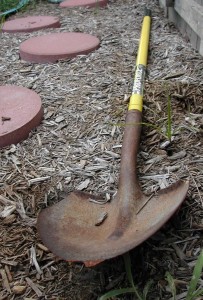Winterize tools, equipment, containers
Trees, shrubs and other perennial plants growing in containers should be moved into a protected area such as a covered patio, unheated shed or garage by early December. Plants which survive in the ground may have roots frozen in exposed containers. There is no large mass of surrounding soil to buffer cold temperatures, so temperatures in containers drop much lower and roots can be killed. Water plants well before storage and check monthly so they do not dry out during the winter.
Expansion from freezing soil can cause ceramic or other breakable containers to crack and break. It is best to empty soil mixes from annual containers and start with fresh soil next year. Spread container soil over flower beds or vegetable gardens and mix them in next spring. Even non-breakable containers will weather the winter better if stored inside.
Hoses should be drained and stored inside for the winter. If left attached, water can back up in faucets and freeze and crack them. Repeated freezing and thawing of hoses left outside can damage and shorten their life. Insulated faucet covers are available to protect outside faucets from freezing.
Power equipment such as mowers, trimmers and tillers should have gasoline drained from tanks. Then equipment should be run until all gas is used in the engine. This prevents gas from evaporating and leaving a sticky residue which gums up engine parts. Blades and tines should be cleaned and wiped or sprayed with oil to prevent rust.
Metal parts of hand tools should also be cleaned and oiled. Wooden handles can be rubbed with linseed or mineral oil to reduce cracking and slivers.
Automatic sprinkler systems should be drained by opening at their lowest point.

